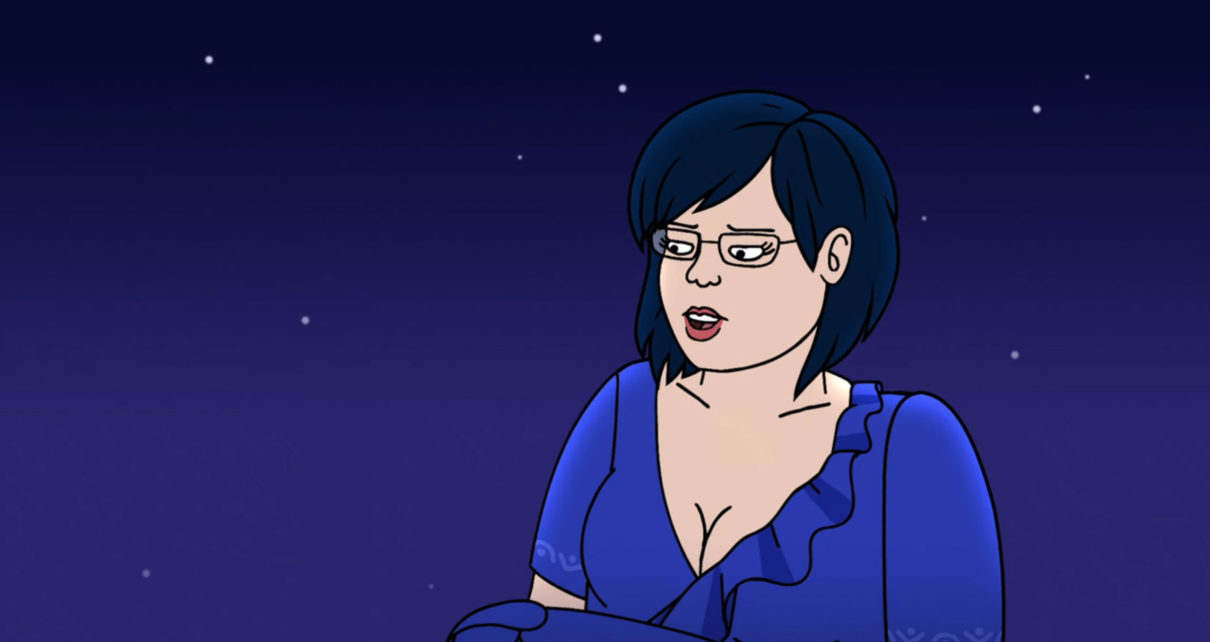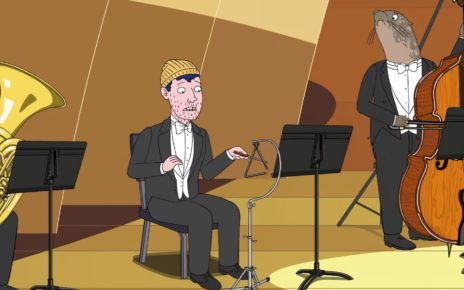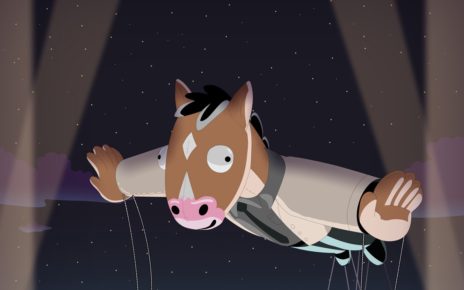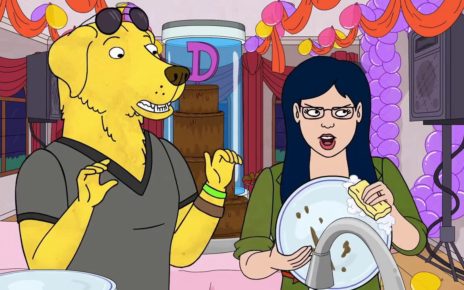The very last moments of BoJack Horseman‘s final episode “Nice While it Lasted” has Bojack joining Diane Nguyen on the roof one last time. After six seasons, both her appearance as well as her outlook on life have changed drastically for the better; she’s traded her iconic jacket and jeans for a flowy blue dress and her long hair for a cropped bob. She reflects on her past relationships, saying, “I think there are people that help you become the person that you end up being, and you can be grateful for them, even if they were never meant to be in your life forever.” With that, it is made evident that this would be their last interaction with their final words, but what is most obvious is that Diane finally chose her happiness over trying to find her definition of a greater meaning in life: rescuing the world and the people in it.
From her struggle to set boundaries for herself, to her mental health history, to her need to martyr herself for the greater good, I saw much of myself in Diane. It’s hard to admit, because Diane is not a lot of fans’ favorite character. On Reddit, YouTube commentary, and other hubs for fan discussion, there is a good amount of Diane-hate throughout the forums. While some fans saw Diane’s reaction to the “Belle Room” Mr. Peanutbutter built for her in the Season Four finale as a cruel, selfish tantrum, I saw it as the point where she stood up for the boundaries he crossed consistently.
But out of all of Diane’s moments, I related with her most closely in Season 6’s “Good Damage”. The episode, which has been compared to season four’s “Stupid Piece of Sh–t” for similar chaotic themes of insecurity and self-hatred (and interesting doodles), shows Diane struggling to put together her “sad girl” memoir in essays. The best part about seeing Diane’s struggles with her writing throughout the series, whether it be flashbacks to her Starbucks days or while writing her memoir, is the care the writers put into her writing process and career. Even though she has made her way into publishing with her ghost-written memoirs, Diane still feels that she isn’t successful unless she can create a greater purpose from her trauma. She attempts to sort through her memories, from her upbringing in Boston with an abrasive father and equally brash siblings to being bullied in school. It eventually leads her to imagine her book as a collection of purposeless anecdotes titled Whiny Diane’s Tome of Bellyachin’.
Suddenly, Ivy Tran: Food Court Detective intrudes on her plans. Inspired by her brief interaction with a typical apathetic teen worker in a clothing store aptly named Trauma, she cranks out a middle-grade teen mystery novel that is quirky and fun, which upsets her because it’s not the book she originally envisioned. Diane expresses her worry to her boyfriend Guy that she’s unable to write the book of essays because she is on antidepressants. After showing the manuscript to her him, Guy points out to her that maybe she never actually wanted to write her book of sad essays at all and that the manuscript she wrote is just as valid as anything else she could have written, additionally pointing out that she had trouble writing even with antidepressants. This puts her at ease long enough to return to the pharmacy to pick up her prescription, only to abandon it after Princess Carolyn tells her that “sad is the new fun” appeals to her desire to “appeal to all the little Dianes” with her story.
Abandoning her meds, Diane attempts to write the essay manuscript again, only to have a more intense meltdown when her inner self is attacked by manifestations of the people in her past and present life. Her “father” blames her for reallocating the cause of her own problems, her “bully” convinces her that she deserved to be bullied, and “Bojack” tells her that her damage isn’t interesting enough to appeal to anyone. She breaks down once more in front of Guy, and he decides to submit her Ivy Tran manuscript to Princess Carolyn without her knowledge. Princess Carolyn ends up loving it, but Diane asserts if she doesn’t write the original book, it will never happen and she will have to confront that her trauma was for nothing. Diane protected herself from succumbing to her damage by convincing herself it made her special and that it is her responsibility to “make little girls feel less alone.”
Ivy Tran: Food Court Detective is not the way Diane anticipated she would make her impact on young girls, but it ends up being successful both commercially and personally. The book helps build a more positive relationship with Guy’s son, inspires many young girls who adore her writing, and helps Diane accept she can have happiness without writing the magnum opus she felt forced to write. It is also still a reflection of herself, as the main character is Vietnamese-American, has just made a big move, has an absent father, is inquisitive and smart. Ivy Tran makes an impact without devouring its author’s wellbeing.
Diane’s own writing odyssey puts me at ease and helps me to prioritize what makes me happy. Many times, I find myself trying to figure out how to cobble together a coherent piece, how it needs to have a “bigger meaning” to matter. There’s an overwhelming pressure to prove I’m a “serious” writer—and all of that pressure is internal. Currently, I have five unfinished manuscripts and countless shards of personal essays sharing aspects of my life. I, too, hope that my stories can have a greater impact on society. It is both selfless and selfish at once, the same way Diane is throughout Bojack Horseman.
Like Diane, I also struggle with mental illness, specifically anxiety. I’ve written plenty about my mental health, yet the times when I’ve pitched stories about my struggles or strengths experiencing anxiety, I’m told they are too similar to stories that already exist. It brings me to the bigger question of the purpose of my struggles. Why did I experience it if it wasn’t meant to help other people? If I don’t overcome it, get off of medication, then what was it all for if I can’t use it to help others?
Diane also struggled with bullying the way that I struggled. Diane carries her own crisp memories of being bullied, but questions her role in the bullying. How much of it was her fault? Did she deserve it? I think about my own history with it often, how it has shaped my growth in life. Yet in recent years, I wondered how much of it was due to my own behavior. If I wasn’t a teacher’s pet or made an effort to like the things others liked, would my early school days have been easier?
Yet by the finale, Diane showed me that I don’t need to make sense of anything that has happened in my life for me to pursue happiness. I don’t need to prove the pain I’ve experienced is “special” for it to matter or process it as “good damage.” Most importantly, I don’t need to agonize over any of it to write for the sake of writing the way martyrs are celebrated for their great sacrifices. Whether it be a personal essay, a piece of fiction, or a quick poem, I can write without strings attached. As Todd says in the finale: “Isn’t art less what people put into it and more about what people get out of it?”
Maybe one day, I’ll have my own book signing and can tell a young girl that her braces look cool like Diane does at her own book signing. But even if I don’t, I can still find happiness in what I’ve always gotten out of writing: a creative outlet for myself.
Thanks for reading The Dot and Line, where we talk about animation of all kinds. Don’t forget to follow us on Twitter and sign up for our newsletter.





